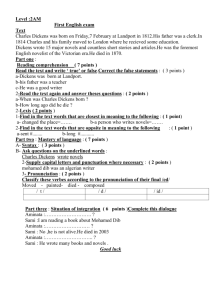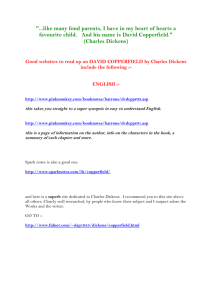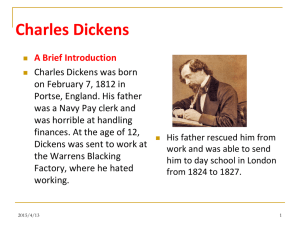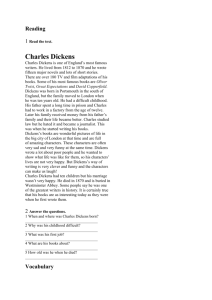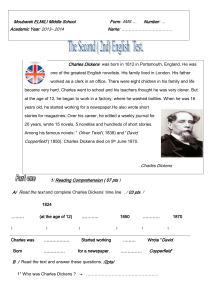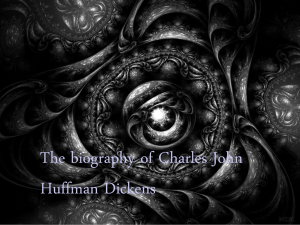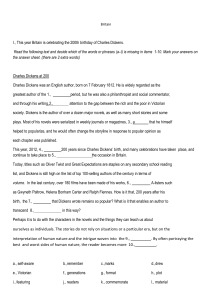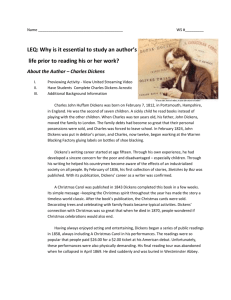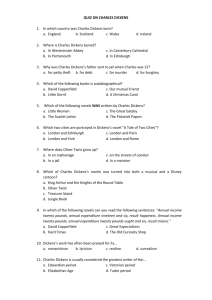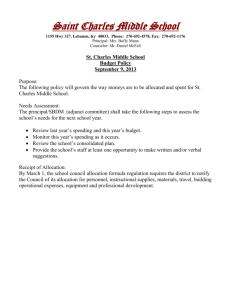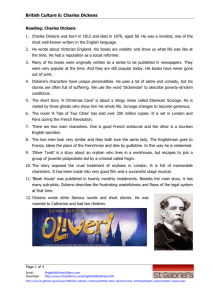Charles Dickens (1820 – 1870)
advertisement
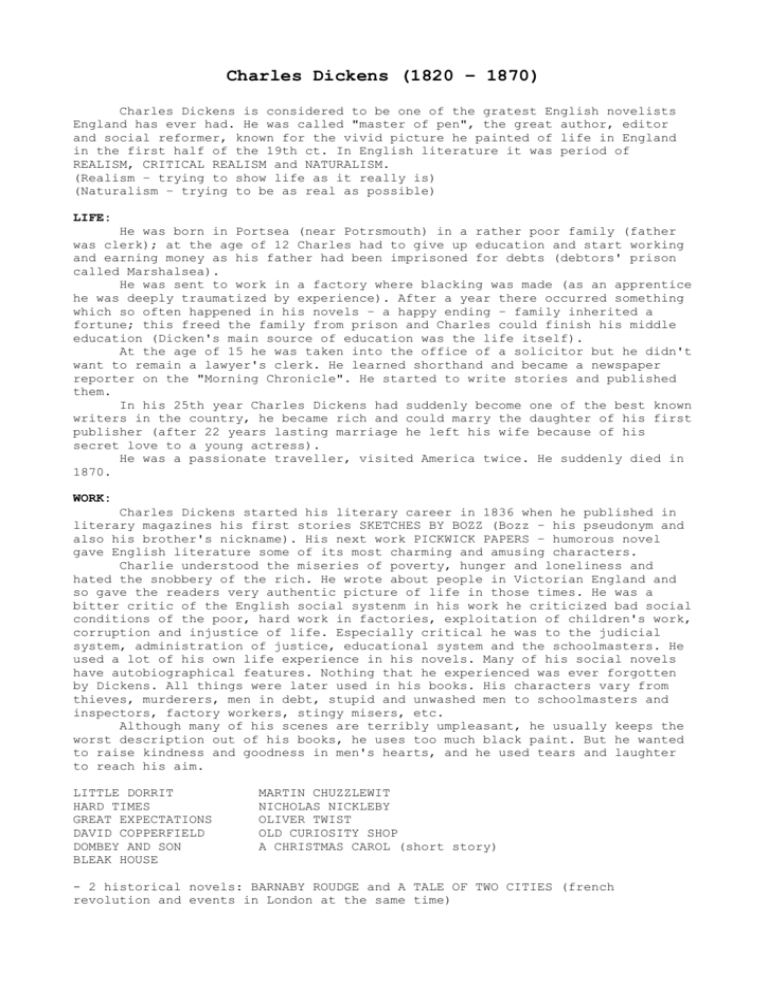
Charles Dickens (1820 – 1870) Charles Dickens is considered to be one of the gratest English novelists England has ever had. He was called "master of pen", the great author, editor and social reformer, known for the vivid picture he painted of life in England in the first half of the 19th ct. In English literature it was period of REALISM, CRITICAL REALISM and NATURALISM. (Realism – trying to show life as it really is) (Naturalism – trying to be as real as possible) LIFE: He was born in Portsea (near Potrsmouth) in a rather poor family (father was clerk); at the age of 12 Charles had to give up education and start working and earning money as his father had been imprisoned for debts (debtors' prison called Marshalsea). He was sent to work in a factory where blacking was made (as an apprentice he was deeply traumatized by experience). After a year there occurred something which so often happened in his novels – a happy ending – family inherited a fortune; this freed the family from prison and Charles could finish his middle education (Dicken's main source of education was the life itself). At the age of 15 he was taken into the office of a solicitor but he didn't want to remain a lawyer's clerk. He learned shorthand and became a newspaper reporter on the "Morning Chronicle". He started to write stories and published them. In his 25th year Charles Dickens had suddenly become one of the best known writers in the country, he became rich and could marry the daughter of his first publisher (after 22 years lasting marriage he left his wife because of his secret love to a young actress). He was a passionate traveller, visited America twice. He suddenly died in 1870. WORK: Charles Dickens started his literary career in 1836 when he published in literary magazines his first stories SKETCHES BY BOZZ (Bozz – his pseudonym and also his brother's nickname). His next work PICKWICK PAPERS – humorous novel gave English literature some of its most charming and amusing characters. Charlie understood the miseries of poverty, hunger and loneliness and hated the snobbery of the rich. He wrote about people in Victorian England and so gave the readers very authentic picture of life in those times. He was a bitter critic of the English social systenm in his work he criticized bad social conditions of the poor, hard work in factories, exploitation of children's work, corruption and injustice of life. Especially critical he was to the judicial system, administration of justice, educational system and the schoolmasters. He used a lot of his own life experience in his novels. Many of his social novels have autobiographical features. Nothing that he experienced was ever forgotten by Dickens. All things were later used in his books. His characters vary from thieves, murderers, men in debt, stupid and unwashed men to schoolmasters and inspectors, factory workers, stingy misers, etc. Although many of his scenes are terribly umpleasant, he usually keeps the worst description out of his books, he uses too much black paint. But he wanted to raise kindness and goodness in men's hearts, and he used tears and laughter to reach his aim. LITTLE DORRIT HARD TIMES GREAT EXPECTATIONS DAVID COPPERFIELD DOMBEY AND SON BLEAK HOUSE MARTIN CHUZZLEWIT NICHOLAS NICKLEBY OLIVER TWIST OLD CURIOSITY SHOP A CHRISTMAS CAROL (short story) - 2 historical novels: BARNABY ROUDGE and A TALE OF TWO CITIES (french revolution and events in London at the same time) Oliver Twist - the life-story about a poor orphan born in a workhouse, happy-end - the book is written with a purpose. The story is situated among the lowest social class – criminals, murderers, prostitutes and thieves, living in London slums to show the huge contrast of their life with the life of the upper classes. Nicholas Nickleby - shocking criticism of the school system in England and the awful conditions at schools David Copperfield - masterpiece, bestseller, lot of autobiographical features Bleak house, Hard times, Little Dorrit, Dombey & son - criticism of the industrialization, exploitation of children's work and cheap labour and the corruption of the English society A Christmas Carol - u know what…
